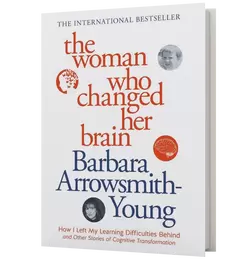Dyscalculia and Maths Difficulties
|
|
A dyscalculia diagnosis can include individuals who find it difficult to follow a sequence of numbers on a page or screen, frequently miscopies math questions leading to incorrect answers, or struggles to grasp the underlying concepts and reasoning behind mathematics.
This condition, sometimes referred to as "maths dyslexia," can extend its impact beyond the realm of maths in school. It can create hurdles in various aspects of life, such as time management, budgeting, and mental calculations required for everyday tasks. |
Dyscalculia and Maths Difficulties - Cognitive Functions
Dyscalculia and maths difficulties can be broken down into weaknesses in one or more of the
following cognitive functions:
following cognitive functions:
|
Motor Symbol Sequencing (Automation of motor plans in writing and eye tracking) |
Predicative Speech (Sequential Logic) |
Symbol Relations (Mathematical Reasoning) |
|
Quantification Sense (Sense of Number, Quantification, Mental Calculations) |
|
Discover Your Unique Cognitive Profile
|
Arrowsmith Cognitive Questionnaire
Vertical Divider
Take our 30-minute cognitive profile questionnaire to start the journey into understanding your brain's strengths and weaknesses through a cognitive lens.
|
Arrowsmith Cognitive Assessment
The Arrowsmith Cognitive Assessment, administered by an Arrowsmith trained professional, will provide you with an in-depth insight into your unique cognitive profile.
|
Navigating a Maths Problem is More Than Just Wrestling With a Number
|
Basic mathematical concepts like fractions and division, as well as advanced ones like calculus theorems, rely on a fundamental cognitive function for conceptual understanding.
This function, known as Symbol Relations, plays a pivotal role in mathematical processing. When this function is underdeveloped, or weak, mathematics can appear as incomprehensible, even as a foreign language. However, when the Symbol Relations cognitive function is strong, it can turn the study of mathematics into a rewarding and enriching experience. |
Some Features of Dyscalculia:
Dyscalculia Doesn't Need to be for LifeOnce the underlying, weak cognitive functions that are leading to the diagnosis of dyscalculia or math disability are identified, each can be strengthened.
It is possible to like maths and even become a ‘maths person’. Contact Empowering Lives Admissions to learn more about strengthening these and other critical cognitive functions. |
Testimonials
|
Amanda struggled in many areas, particularly in Maths. We went to Canada to try the 6 week Cognitive Intensive Program and stayed for 9 months. She has gone from not knowing how to count in Year 4 to re-entering school in Year 7 and getting mainly A's and B's and an A on her first Maths exam. She is now loving school, keeping up with all her schoolwork with no learning support and organising herself. The Arrowsmith Program has transformed Amanda's life. Amanda's Mother |
Amber avoided maths in school and even with repeated practice and summers spent in tears practicing her addition and multiplication tables to get ready for school - she could not learn her maths facts "in one ear and out the other" is how she would describe it. She refused to do maths homework, getting headaches whenever the subject came up. After working on two cognitive functions/ Quantification Sense and Symbol Relations, Amber now looks for opportunities to engage with numbers. She knows her times tables, calculates mileage in her head for our family trips and even does the accounts for her mother's business. Amber's Mother |
Take the next Step
|
Is Arrowsmith right for me
Vertical Divider
Talk to
Admissions |
What we offer
Vertical Divider
Our
Approach |
How to Enrol
Steps to
Enrolment |






